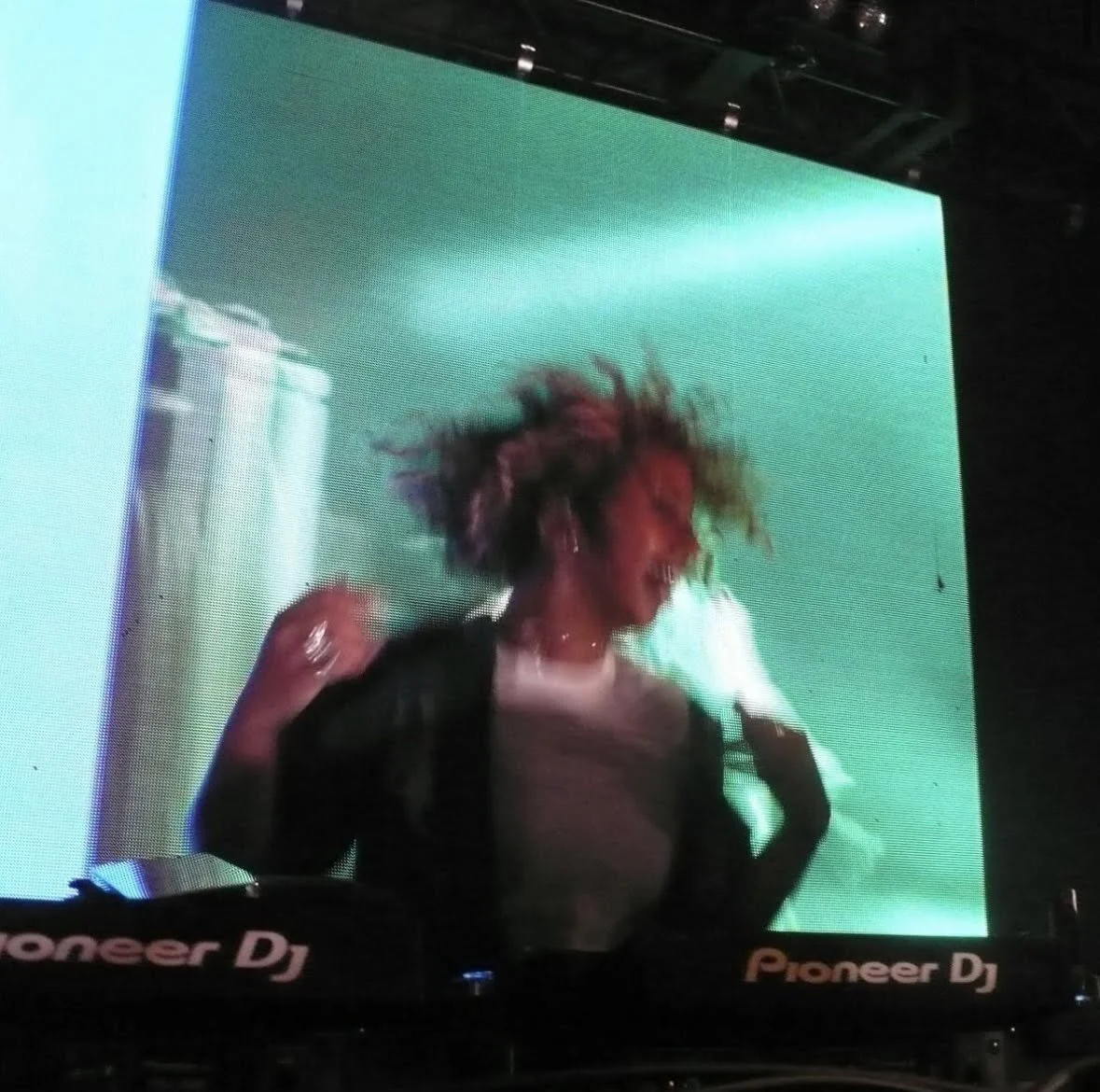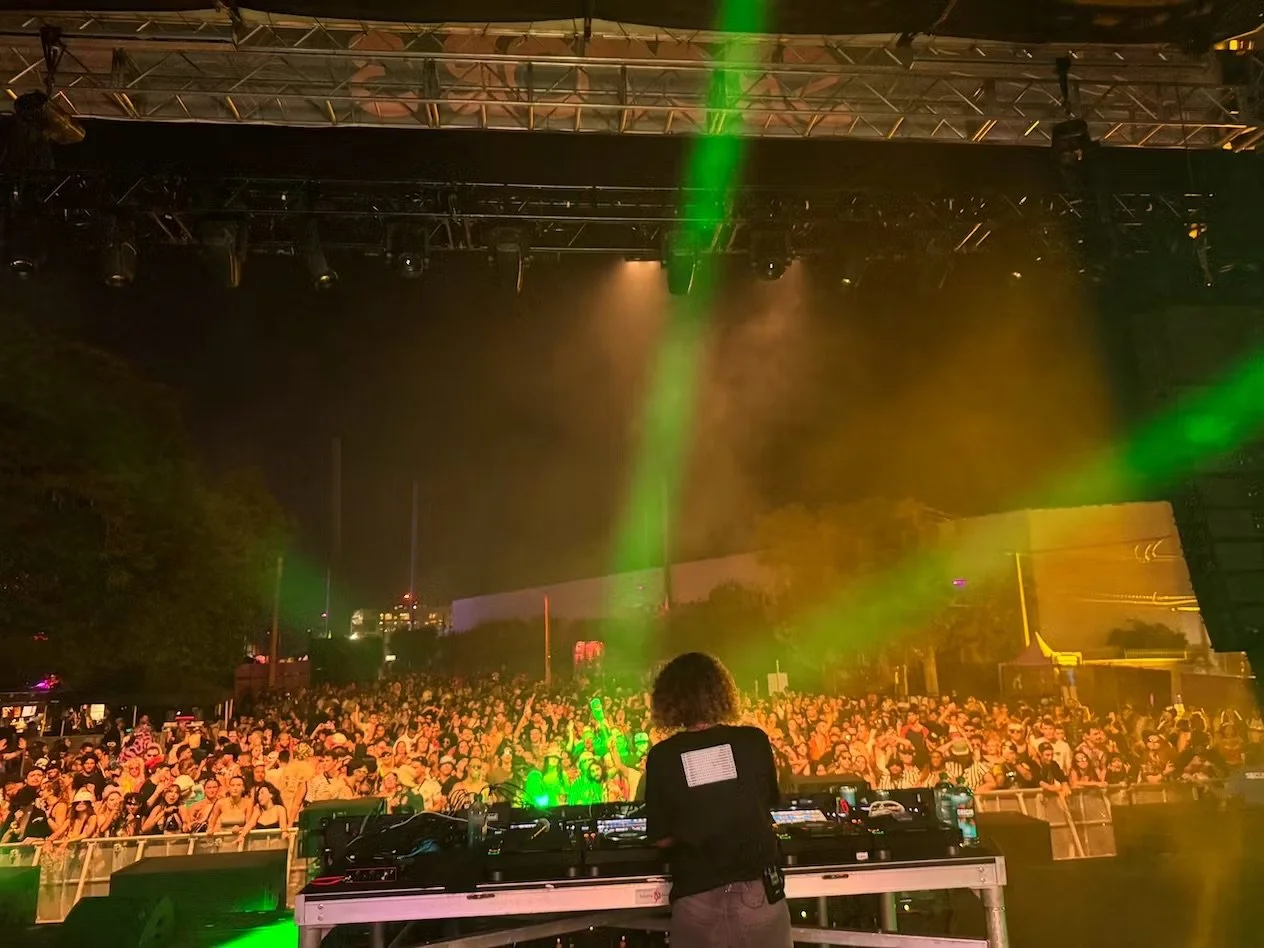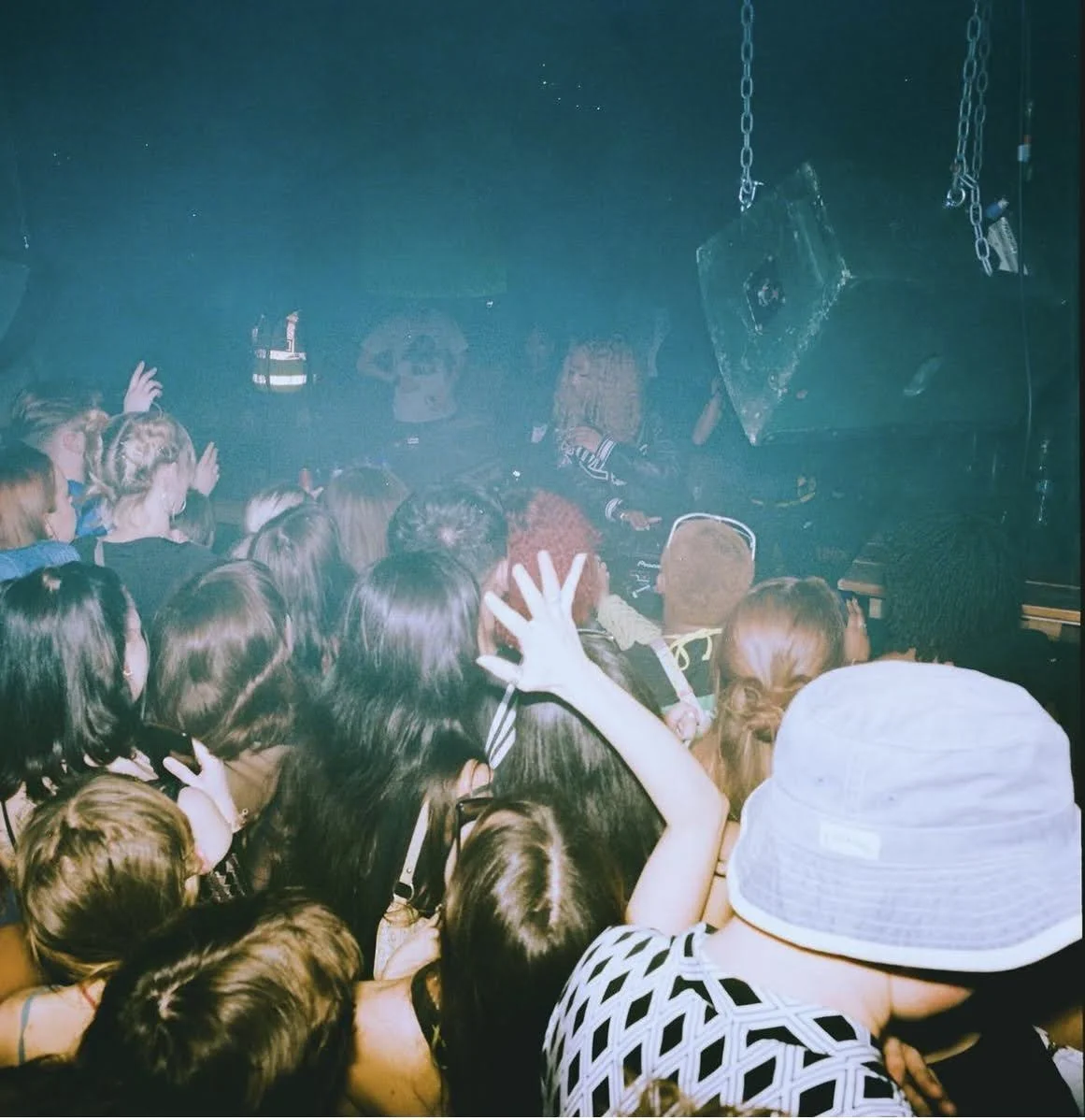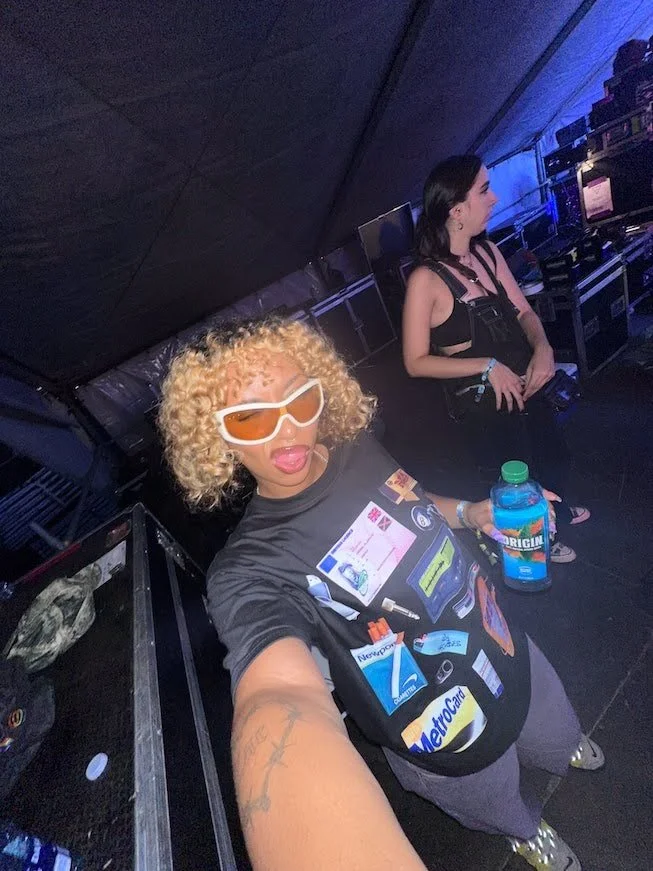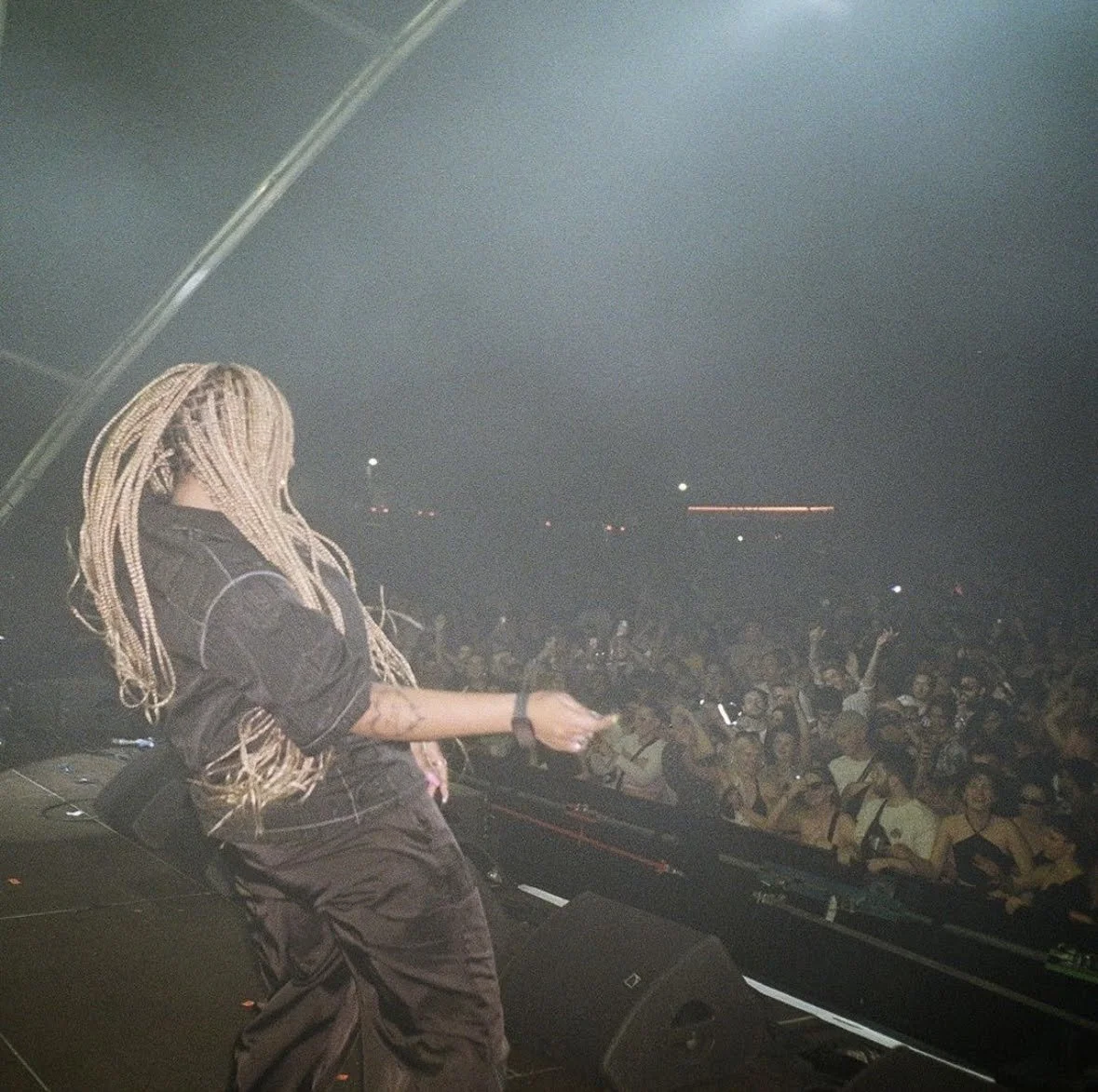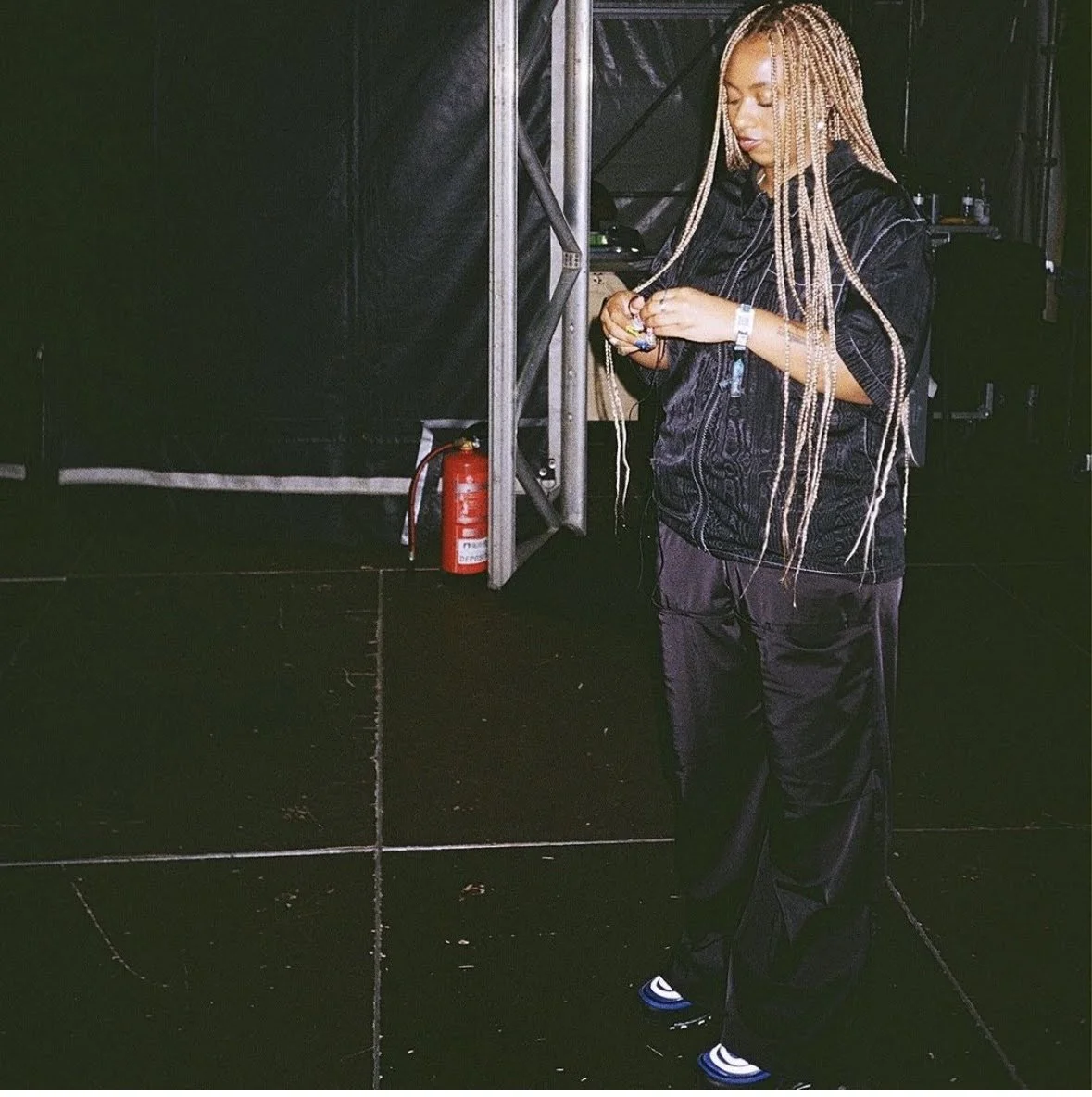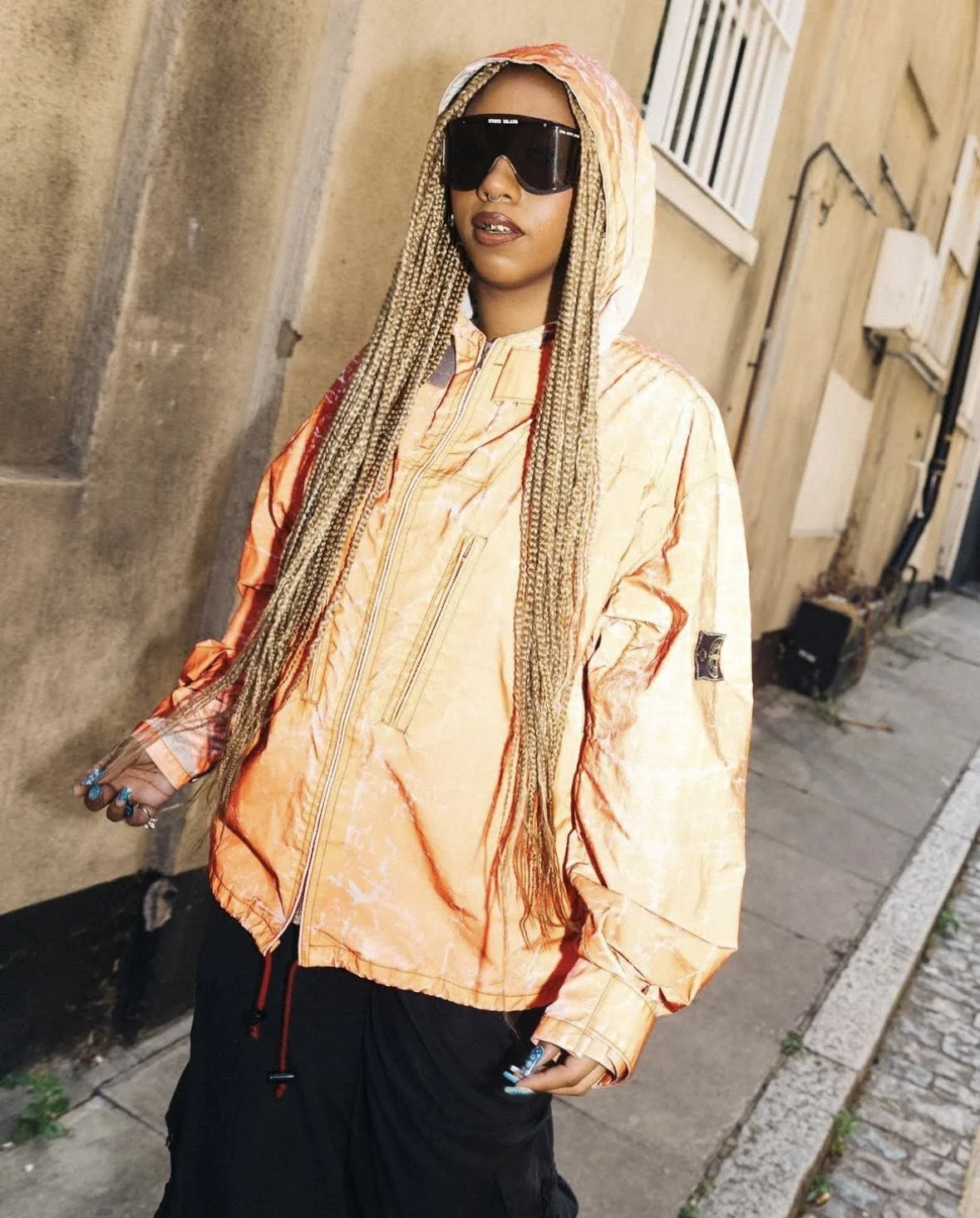Nia Archives Proves Her Role in Defining Jungle’s New Era Through Her III Points Performance
Within the pulsating, rhythmic heart of contemporary music, Drum and Bass is quickly re-emerging its way into the EDM scene. Taking the lead in this revolution is the immensely talented Nia Archives. Her recent enthralling performance at Miami’s III Points Festival has cast her enigmatic presence and spotlight onto the Jungle/Drum and Bass genre. Captivating us all with a perfect blend of the genre's roots, its evolution and her own fun and distinct touch, these sounds and influences are undeniably taking the forefront of the electronic music scene.
Image Courtesy: Instagram
Hundreds of dance music enthusiasts filled Sector 3, an impeccably designed and dreamy stage at III Points, eagerly awaiting to dance freely with the Jungle drums, breaks and soulful, energetic vocals from Archives.
Image Courtesy: Nylon
Jungle, the predecessor to Drum and Bass, developed from the United Kingdom acid-house, rave scene in the 90s. Developed from breakbeat hardcore, there have been several variations of the style where artists would typically incorporate elements from dancehall, hip-hop, house, funk, jazz and techno. Beginning in the early to mid-90s, different influences became less common while piano and uplifting vocals set a foundation for happy hardcore also known as 4-beat. Hardcore DJs played records with fast tempos using darker, industrial style sounds appealing to reggae and dancehall communities. Having a shared emphasis on rhythm and bass, the tempos were easily mixed smoothly.
Eventually, those reggae and dancehall elements made their way into the hardcore sound creating the foundation of what would be known as Jungle. Through the use of basslines, sonic effects and techniques, the Jamaican sound system culture began to influence the sound to the form we hear now, sped-up breakbeats (skittish, percussive patterns) at 165 beats per minute, with half-speed basslines. This evolution opened a new chapter in U.K. club culture, more bound to Jamaican sound systems than acid house raves. While stylistic preferences and moods differed across artists, labels and DJs, the core formula remained consistent: samples, bass and 165 beats per minute breaks.
Most often, the more commonly understood history of Jungle is told from a male perspective. DJs and MCs such as Goldie, Dilinja, Andy C, Fabio, Grooverider and Skibadee are pioneers of the early sound which we are told through documented history typically excluding women. Less often do we hear about DJs, MCs and vocalists such as DJ Dazee, Vocalists Diane Charlemagne (“Inner City Life”) and Olanlee (Reprazent) who have contributed greatly to the Drum and Bass history. Although Jungle is still making its way to the forefront of the scene, women only make up 5% of artists signed to record labels or publishing deals in Drum and Bass according to Vick Bain’s report, Counting The Music Industry: The Gender Gap. This statistic could be applied to the gender dynamic observed at Drum and Bass raves where only a small percentage of women are seen surrounded by the elbows and energetic motions in the sea of male ravers in the crowd.
Nevertheless, there is still hope. Both women involved in labels and the scene are working and fighting for change, and we are seeing this representation as of late; Archives’ performance highlights this. Label manager Nikki Ellis works to improve the representation of women describing it as “being way more conscious of it, making way more effort to source female talent and represent it in our compilations if it’s not exclusively signed artists.” These efforts stand out to make more of a difference than some may imagine. Female ravers are encouraged by seeing themselves represented behind the decks, and as more take to the stage, more are sure to follow.
At Archives’ recent performance in Miami, many women were seen both at the rail and throughout the crowd dancing to the erratic beats and basslines. I had changed locations throughout the set to see where I would feel the most free both spaciously and mentally, but quickly found myself in this free sense throughout a crowd of high-energy, cautious, caring and eccentric individuals, each being part of the reason Drum and Bass and Jungle is kept alive.
Image Courtesy: Instagram
Behind the decks, Archives dances side to side transmitting her electrifying, joyous energy onto the crowd of younger Drum and Bass lovers, who flare their arms up and down with energy shooting out of their fingertips. As I danced freely beside my friend who was experiencing Archives’ set for the first time, I watched as they were mesmerized by her live soulful vocals seamlessly over tracks like “Luv Like” and “Forbidden Feelingz.’’ Having witnessed one of her previous sets myself, I was astounded once again, this time by impressive remixes of rap hits entwined with rumbling bass lines, a fusion that I had not yet been exposed to at any live sets, but have before, but have been so eager to experience.
Image Courtesy: Nylon
Throughout Archives’ performance, she interacted with her crowd increasing their energy before her uproarious and popular tracks such as “Off Wiv Ya Headz” where she samples the hit 2009 track “Heads Will Roll,” and a recent remix of Jorja Smith’s “Little Things.” Archives’ setlist consisted of a variety of fun popular tracks to keep everyone moving to the Jungle drums and breaks, but she would also slow it down a bit to create an atmosphere everyone could enjoy. Also played her single “Sober Feels,” a bedroom recorded track with its hook “I don’t like how sober feels” a track that Archives felt resonated with Britons who were unable to party during the lockdowns at the height of the pandemic.
Archives played other tracks from her third EP, “Sunrise Bang Your Ur Head Across Tha Wall” which she said was an attempt to experiment with different sounds and meld Jungle with other genres whilst “still being true to what I do.” Archives sung tracks off the EP including “So Tell Me” a track that incorporates indie guitar sounds, strings and lively drums; “That’s the way life goes,” and ending the set with “Baiana, a track sampling vocals from a Brazilian record and interview with one of Drum and Bass stars, DJ Patife. Archives came around from behind the decks moving freely to Baiana’s lively sounds shaking her curls around and bringing her energy close to the gals at the rail. Archives also represented her U.S. merch wearing her new U.S. tour tee shirt for the show.
Archives, who is developing her own beautifully unique sound by combining her elements with the classic jungle formula and other various genres, has maintained her distinctiveness in the scene. Some of her breakout success includes taking third place in BBC’s Radio 1’s Sound of 2023 which showcases rising stars in music handpicked by a panel of music industry experts. This was shortly after Archives' groundbreaking achievement as the first winner of the MOBO's best electronic/dance supported by MixMag. She was also “the first artist to win a dance music category at the awards in over a decade.” She has also delivered multiple live performances in major festivals such as Primavera Sound and Glastonbury while stunningly opening up for Beyonce. Recently, she received a 2023 Rolling Stones nomination for “The Breakthrough Award.”
Archives has also mentioned where some of her inspiration comes from which are mainly female pioneers in British dance music such as DJ Flight and DJ Storm. “It’s representation, and it’s really important to see yourself in music,” Archives said. One of Archives' favorite artists Jayne Coneely, better known as DJ Storm has become a fan saying Archives is “like a little sponge” looking to learn from older stars, “she is a force to be reckoned with.”
Image Courtesy: Clash
Leeds-raised Bradford-born, Archives has always been surrounded by music from rap at home, gospel at her local Jamaican Pentecostal church, and Drum and Bass carnivals. At the age of 16, Archives left home to move to Manchester where she began to write her music. After leaving a difficult home life, she created tracks such as “Crossroads,” a track about the estrangement with her mother as a way to process her emotions. She sings heart-strung lyrics, “Tell me, who do I turn to? I used to trust you, but you said things that were untrue.” At first, these vocals had been put over rap beats, but Archives said they “still sounded too emotional,” so she ended up speeding the music up with the Jungle sounds as a way to “disguise the emotions I’m actually feeling with these crazy Jungle drums,” she said which inspired the formula she could stick with.
But along with all things, the 90s Jungle is having an undeniable resurgence in the EDM scene. Techno and house records feature breakbeats again and legends like Squarepusher and Aphex Twin seem to be influencing younger artists who attempt to imitate their sense of controlled chaos through pitch manipulation, distortion and elements of breakbeat, IDM and Jungle. Regardless of how artists try to achieve it, creating tracks that mimic the past they have never lived, chasing that feeling surrounding the “heart” and sound of Jungle is why modern Jungle exists.
Archives embodies a pursuit not just for chasing that feeling of a shared experience, but for the most authentic and compelling expression of an artist's creativity. Her innovative approach to sound experimentation and fearless exploration of new musical bounds all while keeping her work with Jungle music at its core, has delivered groundbreaking results keeping Jungle alive.
Strike Out,
Writer: Sydni Torrero
Edited by: Nina Rueda and Olivia Wagner
Orlando

